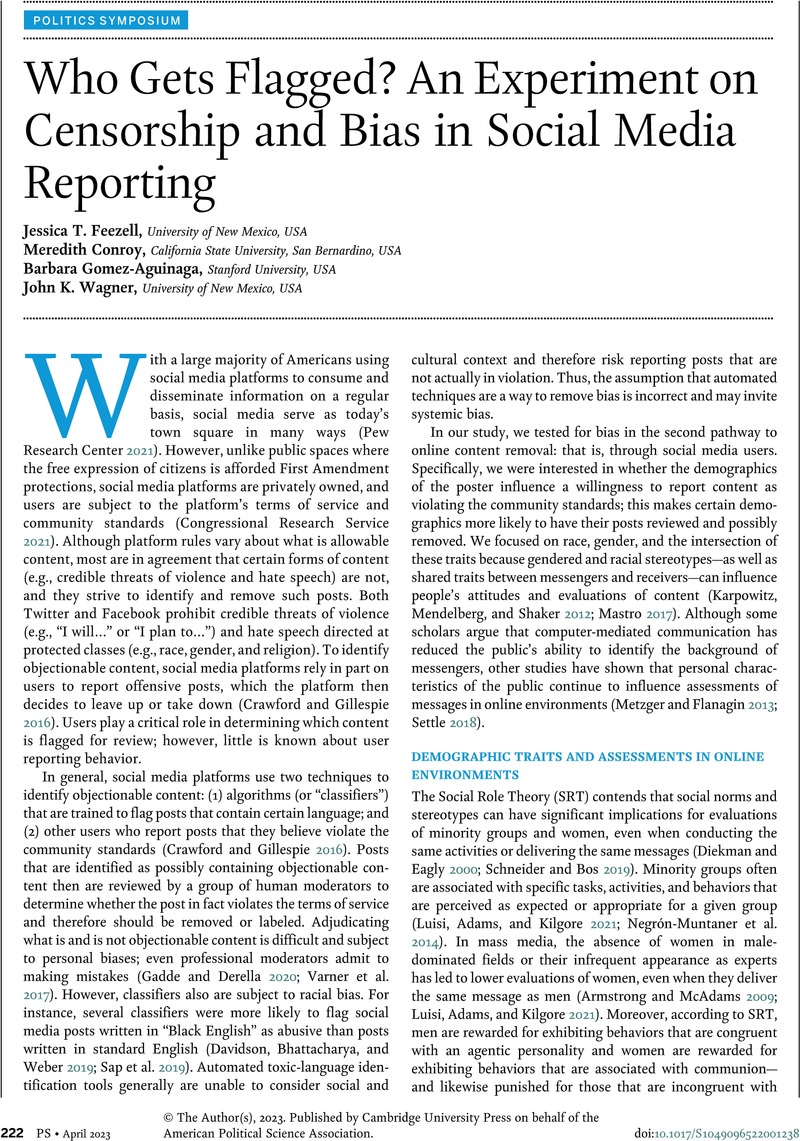Crossref Citations
This article has been cited by the following publications. This list is generated based on data provided by Crossref.
Johnson, Miriam J
2024.
The Digital Pen.
p.
47.
Hasan, MD. Nahid
Sakib, Kazi Shadman
Preeti, Taghrid Tahani
Allohibi, Jeza
Alharbi, Abdulmajeed Atiah
and
Uddin, Jia
2024.
OLF-ML: An Offensive Language Framework for Detection, Categorization, and Offense Target Identification Using Text Processing and Machine Learning Algorithms.
Mathematics,
Vol. 12,
Issue. 13,
p.
2123.



